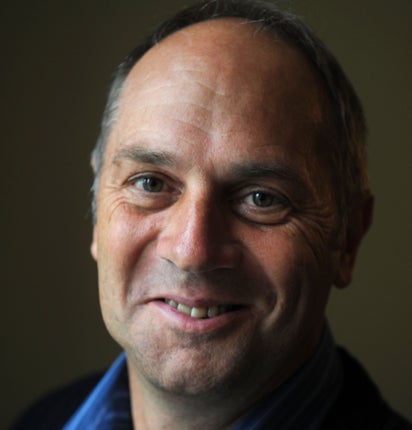Passed/Failed: An education in the life of Steve Redgrave, rower and only UK athlete to win five golds at successive Olympics
I felt special, going down to the river

Sir Steve Redgrave CBE, 47, won his last gold medal in the 2000 Olympics and his 1996 record still stands. In 1999 he won his ninth World Championship gold. His latest book, Inspired, is out now.
People tell me that I was quite a laid-back child and went with the flow but that's not how I remember it. I didn't like St Peter's Street School in Marlow very much. I was quite heavily dyslexic; it was not until I was 10 or 11 that this was picked up. The street went down to the river and the slipway where they launched cabin cruisers; I remember going on a school outing and looking across the river and seeing the weir.
I was at Holy Trinity Juniors for two years and then moved to Burford, a newly built school; I lived almost next door. The headmistress picked up my dyslexia but the word didn't mean much.
My older sisters had all failed the 11-plus – and they were a little bit more academic than me. Before the 11-plus you were supposed to put down your first choice of grammar school. I don't know if my parents did that – but I knew I was going to the secondary modern. It was written on the wall beforehand and that made it a little bit easier when I didn't pass the 11-plus.
I didn't enjoy the first or second year at Great Marlow Secondary Modern very much. In general, I wasn't a troublemaker – or wasn't caught – and I got on with teachers and different groups of kids.
My dyslexia meant I wasn't allowed to do French but instead did extra English. If you're struggling with your own language, you're going to be struggling even more with someone else's.
Francis Smith was head of English. I was not in his top English group but he was my form teacher for one year. He was captain of the Marlow [town] Rowing Club and asked a few individuals in the school if they would like to join the school rowing club. (You can pile everyone onto the football pitches but you can't do rowing in large numbers; the biggest boat is an eight.)
He chose me because I had big hands and feet and so was liable to become a big person. Of the 12 in the school rowing club, three of us got through to the 1988 Olympics, coming fourth or better.
You felt special, being allowed to go out of the games lesson and down to the river. He made it fun. He would take us to the Marlow Rowing Club and drop us off at our homes afterwards. If it hadn't been for him, I probably wouldn't have got near a boat.
I was always quite practical, so my best subject was woodwork and I got a grade one at CSE. I did very well at combined sciences but in maths and English I was down in the fours. I didn't take any O-levels.
When I left, the school gave me the Best Potential Citizen award which normally goes to the head boy or girl. That really shocked me. They saw something in me that I didn't. I could have gone to college and tried for re-takes but people were telling me that I had a good chance of being a world champion and after a while you began to believe that.
I remember when my first child, who is very bright, started to learn the alphabet, she brought home some letters cut out of wood. When I picked up a lower-case letter "a", my wife pointed out that I was holding it the wrong way round – but it seemed pretty normal to me.
jonty@jonathansale.com
Join our commenting forum
Join thought-provoking conversations, follow other Independent readers and see their replies
Comments